Daïnah la métisse [Dainah the Mixed] (Jean Grémillon, 1932)
Apr
15
Titanic

Mechanic Michaux (Charles Vanel) and Daïnah (Laurence Clavius) on the Art Deco liner. DPs: Louis Page & Georges Périnal.
A cruise ship in remembrance of the sinking of the Titanic on April 14–15, 1912.
Mestiza Daïnah, who accompanies her illusionist husband on the luxury cruise ship he works on, loves to flirt and tease the other sex, including the ship's engineer Michaux. When she disappears, suspicion falls not only on Michaux, but also on her Black husband.
france
Les demoiselles de Rochefort [The Young Girls of Rochefort] (Jacques Demy, 1967)
APr
10
Siblings Day
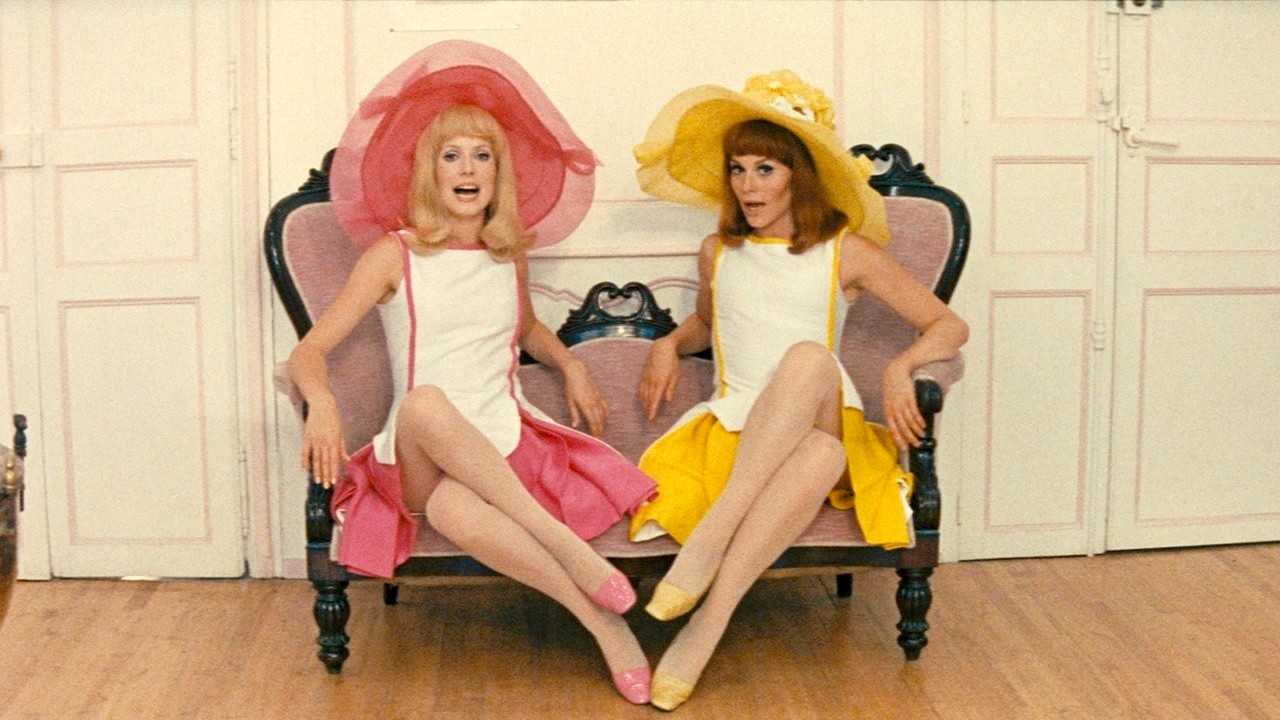
Sisters Delphine and Solange Garnier mid-song, played by real-world sisters Catherine Deneuve and Françoise Dorléac. DP: Ghislain Cloquet.
Siblings as main characters for Siblings Day (USA/Canada)
– Delphine & Solange
“All the ideas I'd previously had were shown to be completely false. This was the first time I had really seen the strength and the power of a mass struggle; ordinary people directly participating in organizing their communities, and the defense of their communities.”The Patriot Game (Arthur MacCaig, 1979)
Apr
4
MLK Jr. – 1968

A older lady calmly clips her hedges while a British soldier attempts to hide behind them (via). DPs: Arthur MacCaig & Théo Robichet.
The assassination of Martin Luther King Jr.: civil rights being fought for.
– Arthur MacCaig, title card
“Dear child,
l received your letter and hope you will write often. l hope you won’t stay away too long and that you’ve found a job by now. If you’re doing well, we’re happy. Even though we do miss you. When will you be back? Everything is fine here, but Sylviane is home with the flu. My blood pressure is low. l’m on medication for it. Today is my birthday. l feel sad. lt’s quiet at the shop. Tonight we’re going out to dinner with friends. That’s all. Your birthday is coming up. l wish you all the best. Write to me soon about your work, about New York, about everything. Lots of love from the three of us.News from Home (Chantal Akerman, 1976)
Apr
3
Pony Express Day

New York, a street scene. Superimposed a quote from one Chantal Akerman's mother's letters. DPs: Jim Asbell & Babette Mangolte.
Mail or a mail carrier for Pony Express Day (USA).
Your loving mother” (quote via)
Chantal Akerman reads out letters that her mother wrote to the former's stay in New York City between 1971 and 1973. The words slowly blend with the city.
“Celui qui n’a jamais rien dit a cinquante ans d’âge et ne dira jamais rien s’est appris à lire dans les moindres gestes” Le moindre geste [The Slightest Gesture] (Jean-Pierre Daniel, Fernand Deligny + Josée Manenti, 1962–1964, 1971)
Apr
2
World Autism Awareness Day
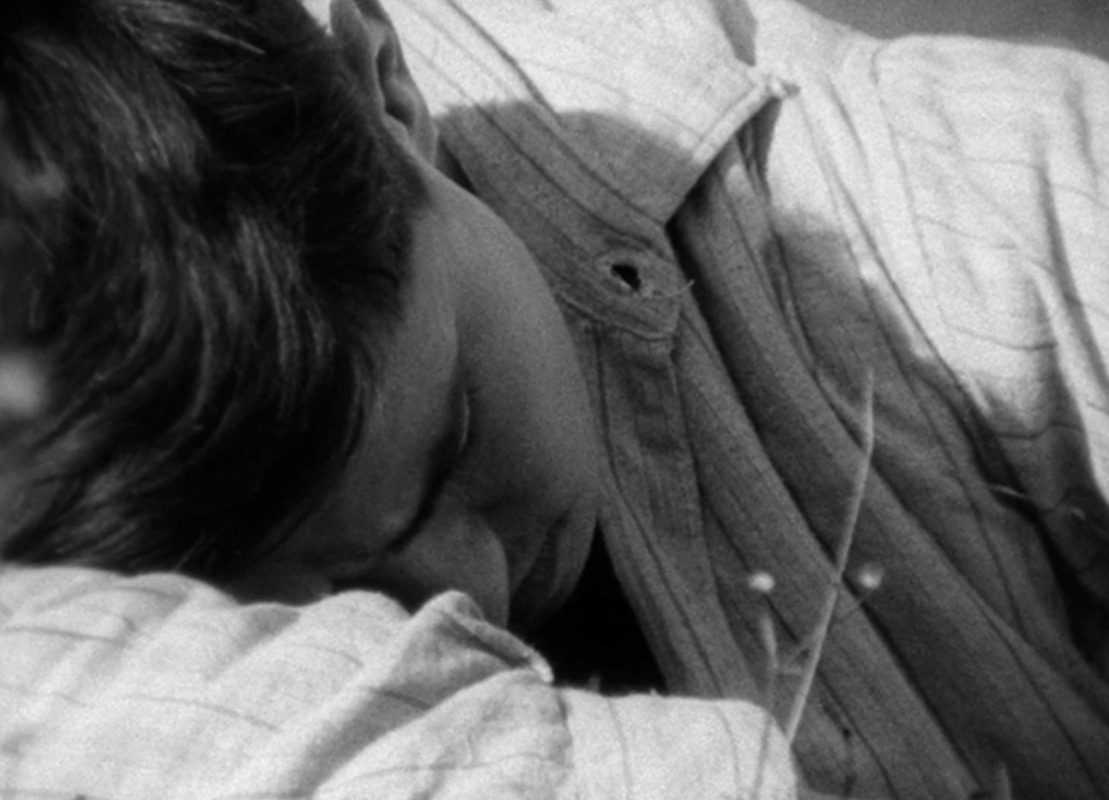
Yves (Yves Guignard), resting. Deligny wrote a lot about the lack of words, and how it stays close to the heart of cinema. Still (and a wonderful essay) via. DP: Josée Manenti.
An autistic actor or character for World Autism Awareness Day
– Fernand Deligny, Essi & Copeaux. Derniers écrits et aphorismes, via
Fernand Deligny was an educator who promoted play and exploration, as opposed to drugs and force, to open up the lives of young nonverbal, autistic people. We follow Yves Guignard, one of Deligny's “patients”, who, in his own wordless rhythm shows us his world.
Over time, the film was forgotten and even lost, until it was found in a tree, then completed with a narrative and soundtrack in 1969, selected for the 1971 Cannes Film Festival and praised by Cahiers du Cinéma, lost once more, and eventually – with support of Chris Marker – restored and brought to a wider audience.
Les yeux cernés [Marked Eyes] (Robert Hossein, 1964)
Apr
2
1964
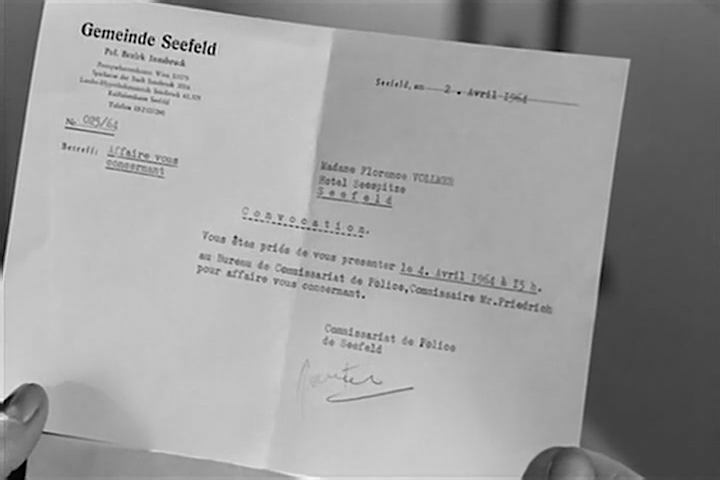
A typed request on official stationary dated April 2, requesting to show up at the police precinct on April 4, 1964. DP: Jean Boffety.
“Bonsoir. Je m'appelle Rosalie!” Rosalie et son phonographe [Rosalie and Her Phonograph] (Romeo Bosetti, 1911)
Mar
28
Something-on-a-Stick Day

Rosalie (Sarah Duhamel) dances to her new phonograph. Duhamel makes eye contact with the viewer throughout the film, and even formally introduces herself during the intro.
A laugh out loud scene for Something on a Stick Day (USA)
Rosalie (the wonderful Sarah Duhamel) buys herself a phonograph and is delighted by the wonders it brings. Quick, the whole household should know!
Not only the obvious moments (no spoilers here), but the small, seemingly improvised bits is what makes Rosalie stand out above American productions of the time – with the exception of Roscoe Arbuckle's; his water bucket pun in His Wife's Mistakes (1916) still has me in stitches.
Duhamel makes great use of her physique, and doesn't shy away from looking inelegant, boorish even. Her hips are for pushing things and men out of her way, and her mighty paws easily toss any unwieldy piece of furniture out of the window.
Like Rosalie's irresistible gusto and her delightful ditties, the combination of Duhamel's physical comedy and (former #vaudeville-ian) Bosetti's Italian-flavoured slapstick, plus some of the best stop-motion trickery I've ever seen, is simply magical.
“The Dust has come to stay. You may stay or pass on through or whatever.”Paris, Texas (Wim Wenders, 1984)
Mar
27
94th Academy Awards
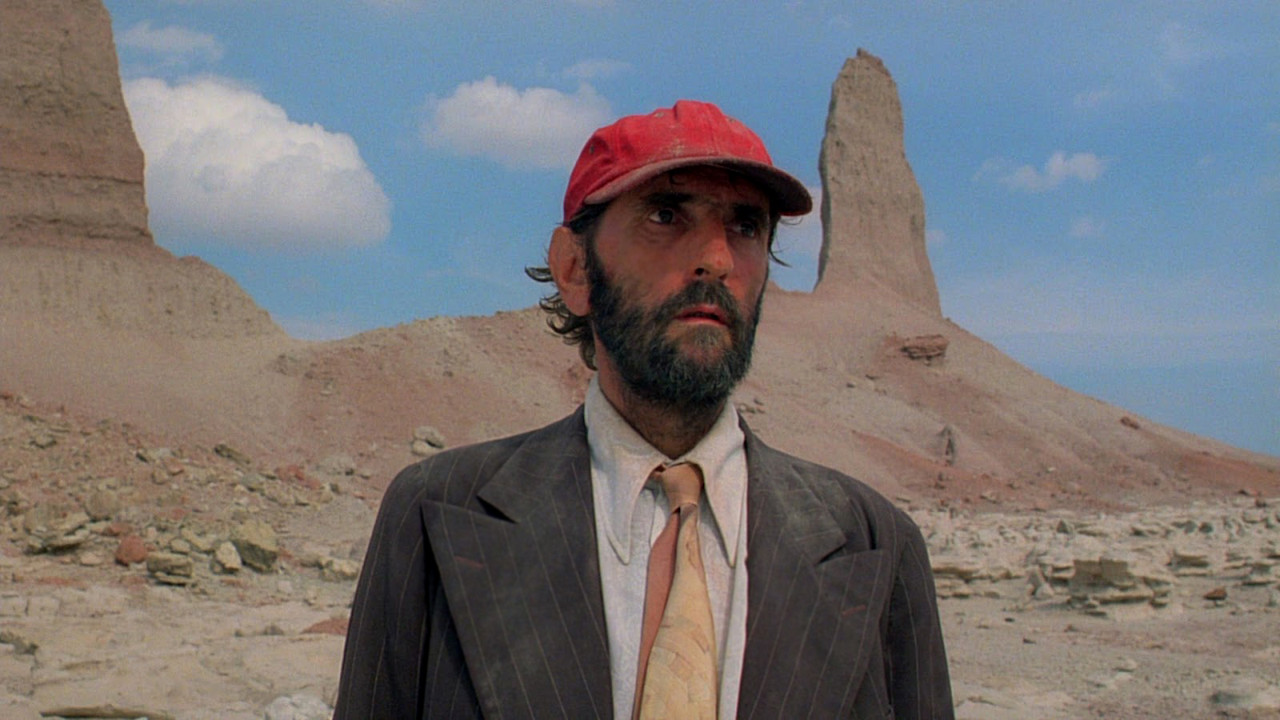
Travis (Harry Dean Stanton) wandering the desert. DP: Robby Müller.
A film that I wish would have won the Academy Award for Best Picture in honour of the 94th Academy Awards (2022).
– gas station sign
“I want to remain an enigma forever. To others, and also to myself.”Ludwig (Luchino Visconti, 1973)
Mar
25
Elton John – 1947
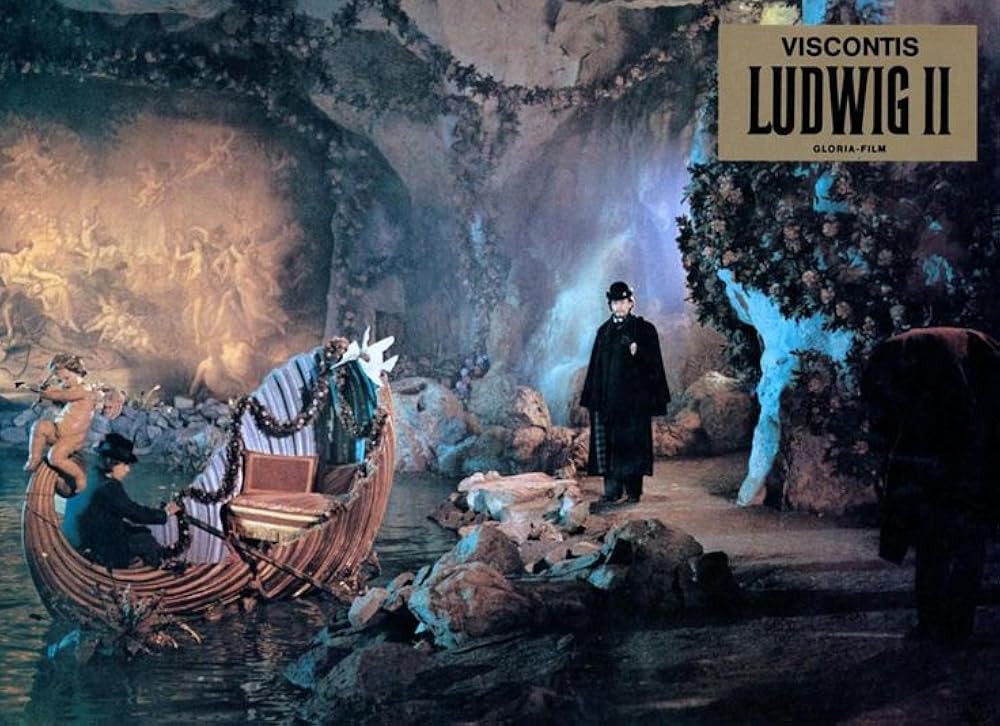
Elisabeth “Sissi” of Austria (Romy Schneider) and King Ludwig II of Bavaria (Helmut Berger) in his beloved Venus Grotto below Schloss Linderhoff. Ludwig wanted blue light in reference to the Grotta Azzurra in #Capri, and had electricity installed in the grotto, which was the first usage of electricity in Austria. DP: Armando Nannuzzi.
A flamboyant character for Elton John’s birthday (1947).
– Ludwig II
“F-R-double-E-D, D-O-M spells Freedom! We fight for freedom, for one and for all! It's you-and-me-dom, and ten foot tall! Freedom, freedom, and oh-can-you-see-dom, we'll always beat 'em with star-spangled freedom!”Mr. Freedom (William Klein, 1968)
Mar
23
freebie: liberty

Mr. Freedom (John Abbey) in his American football outfit carries Marie-Madeleine (Delphine Seyrig) is his muscular manly arms. Tagline: OH! OHHH! MR. FREEDOM! YOU KILL ME. DP: Pierre Lhomme.
Freebie: “Give me liberty or give me death!” (Patrick Henry, March 23, 1775)
– Mr. Freedom singing his theme song